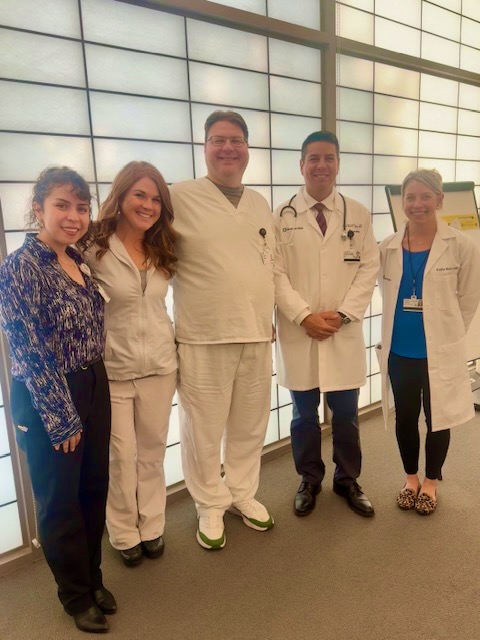Lessons Learned From Cleveland Clinic

Dr. Ricardo Correa leads a team at Cleveland Clinic who are dedicated to helping improve care for their patients with diabetes. Laura Lomeli has served as the project manager for Cleveland Clinic’s efforts to improve vaccination rates. Together, they got to work on implementing technology-driven solutions for the low vaccination rates at Cleveland Clinic’s Park East location. However, after three months of work, they didn’t see any changes. They decided to engage the team in discussions and go back to basics.
As Dr. Correa and Ms. Lomeli began meeting with the clinic staff, they realized that it needed to focus on changing the clinic's workflow. They made changes so that now during the regular patient rooming process, the medical assistants assess a patient’s vaccination status. If the vaccination status data are missing, the medical assistant updates the patients’ record using vaccination data from the Ohio Department of Health. This step helped to significantly improve vaccination documentation.
From left to right: Laura Lomeli, BA; Erin Perpetua, RN, BSN; Dan Homza, RN, BSN; Oscar Morey-Vargas, MD; Kaylin M. Hauler, CNP.
Team members not pictured: Ricardo Correa, MD; Mona Gossmann, MD; Carmen Polanco Santos, MD.
The next step involves an old-school, low-tech solution: different color laminated cards to give a visual cue to the provider.
- A green card means that no further action is needed. The patient is up to date on the targeted vaccinations.
- A red card is used to cue the provider that a patient needs a vaccine. A red card is the cue for the opportunity for the provider to discuss vaccines with the patient.
Dr. Correa and Ms. Lomeli gained valuable insights from their first implementation site. They discovered that starting with a simple solution and involving the team from the outset was key to success. Initially, the team at Park East wasn’t engaged for the first three months, which led to increased workload and delayed progress. As a result, Dr. Correa committed to leading with active listening and learning from the team’s past experiences to better understand what had worked well before.
After one year of working on this QI initiative at Park East, they expanded to a second site on the main campus. This created both an opportunity to act on some of the lessons learned from Park East, and a challenge for implementing the same process in a very different environment. The Park East Clinic and Cleveland Clinic’s main campus are in different areas of Cleveland and serve different patient populations. In addition, the two sites are staffed differently. Many providers are not at the main campus clinic site each day, and there is relatively high turnover among the MAs. Dr. Correa and Ms. Lomeli wondered if they would be able to duplicate their Park East successes. However, by having ongoing discussions with the team from the beginning to hear their ideas and concerns, they were able to successfully implement their new workflow and low-tech solutions at the main campus site, too!
Cleveland Clinic’s efforts brought them great results!! Vaccination documentation rates are now over 90%! They saw a more than 40% increase in influenza vaccinations and a steady and stable increase in COVID-19 rates. As they look to continue their work, Dr. Correa and Ms. Lomeli offer the following words of wisdom:
- Involve the team early and often. Let them tell you what will work on the ground. This bottom-up approach shows the team that every voice matters.
- Identify opportunities to use visual cues so that the endocrinologist can focus on the encounter yet still bring up concerns.
- Follow up in multiple ways to reinforce changes with staff. Make your training and feedback sessions enjoyable (try a luncheon!) and follow up with emails for those who can’t make it.
- Seek out clinical champions who will remind different providers of the process. Even if there is some resistance, being consistent and diverse in approaches makes a difference.
- There will always be challenges! But, with a continuous improvement mindset, you CAN make real, sustainable change.
Thank you, Dr. Correa, Ms. Lomeli, and the Cleveland Clinic team!
